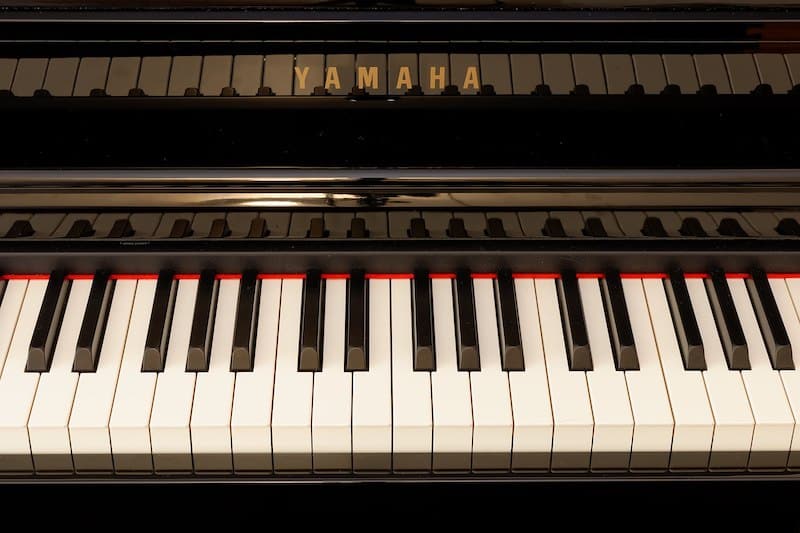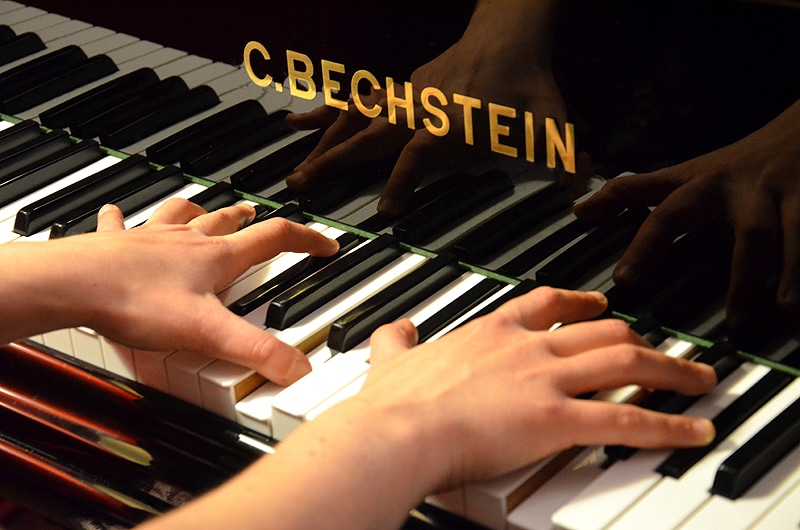When it comes to the best brands of piano, there are a few that stand out from the rest. Whether you’re new to playing, interested in buying a grand piano for your living room, or just want to learn more, the companies below will have something to suit your needs.
So read on as we take a look at the history of 11 of the best piano brands in the world.
1. Steinway & Sons

One of the most recognizable names in the piano industry, Steinway & Sons has been around since 1853. The esteemed company was founded in Germany but now consists of one factory in Hamburg and one in New York City.
Consistency is key when developing these crisp-to-the-touch pianos. Elite performing artists favor Steinway for its reliability across the globe, meaning they can travel internationally and sit down to an instrument that looks and feels the same as the one at their last concert venue.
Many American conservatories have also adopted the brand, working to attain an “all-Steinway school” status.
2. Bӧsendorfer

Originally an Austrian brand that was founded in 1828, Bösendorfer has become one of the highest-end piano brands in the world, though now they’re owned by Yamaha.
You’re not likely to see these pianos resting in private homes unless as a status symbol for those who can afford them.
The uniqueness of this brand is its lengthened keyboard. Whereas most pianos have 88 keys, Bösendorfer adds a handful of extra keys onto the lower end. There are 92- and 97-key models, allowing for a deeper resonance and extended compositional capabilities.
These are truly the bass-heavy stars of the piano industry—and require a hefty sum to enjoy them.
3. Blüthner

Founded by Julius Blüthner in 1853 in Leipzig, Germany, Blüthner is considered another luxury brand in the piano market.
The company has a rich history that weaves in and out of European lore and has been owned by one family for six generations! It’s still owned and run by brothers Christian and Knut Blüthner-Haessler.
Blüthner is known for its fine craftsmanship, particularly its precision and balance. Their construction involves a specific hammer cut and angle alignment, which allows for the strike to distribute evenly across the keyboard.
The piano strings attach directly to the pins, and the soundboard is shaped differently than other pianos for better resonance and easier tuning.
These features reflect the impressive engineering that goes into every one of the company’s pianos. If you didn’t know otherwise, you might think they’re luxury cars, and they’re a similar price, costing tens of thousands of dollars.
4. Yamaha
Though it does produce some marvelous performing instruments, Yamaha caters to a more student-focused market. These are the pianos you’ll find in classrooms, music schools, and other learning institutions all over the world.
Japanese design meets global accessibility in a Yamaha. Friendly to all touches and affordable to most skill levels, you don’t have to devote the same funds and furniture space to a Yamaha as with other brands.
The company produces multiple series of digital, upright, and hybrid options to suit any musical situation.
5. Bechstein
The Bechstein name has a reputation for a reason. It blends craftsmanship with elegance for fine pianos that carry a lower price tag than other créme de la créme in the industry.
Unlike Steinway, which relies on masterful construction and consistent handling, Bechstein’s primary feature is personality. Their pianos exude romanticism, artistry, and color, contributing voluptuous tone to every concert.
Old-fashioned sensibilities lend themselves well to the repertoire of the late Romantic era when played on a Bechstein, though these pianos certainly perform well under any circumstances.
6. Fazoli
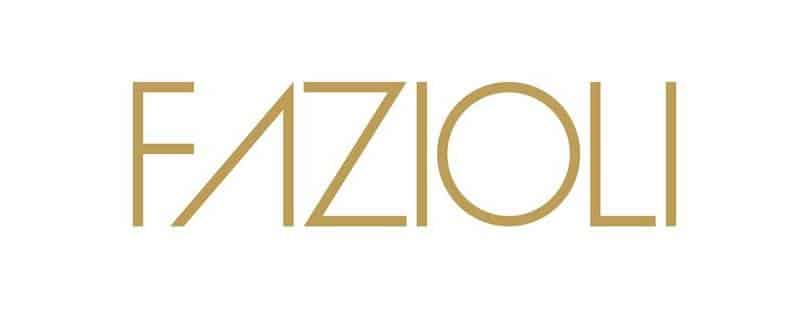
One of the newest piano manufacturers on our list, Fazoli has only been in business since the 1970s, with its first shop established in 1981.
Modern, clean, and engineering-focused, these pianos match the meld of style and refinement that their country of Italy is known for in the fashion and auto worlds.
Because the Fazoli company hasn’t been around more than a few decades, the pianos sound quite crisp and progressive. There are only 150 pianos in production at any given time, with each taking around two to three years to complete—their guarantee of a quality instrument.
7. Kawai
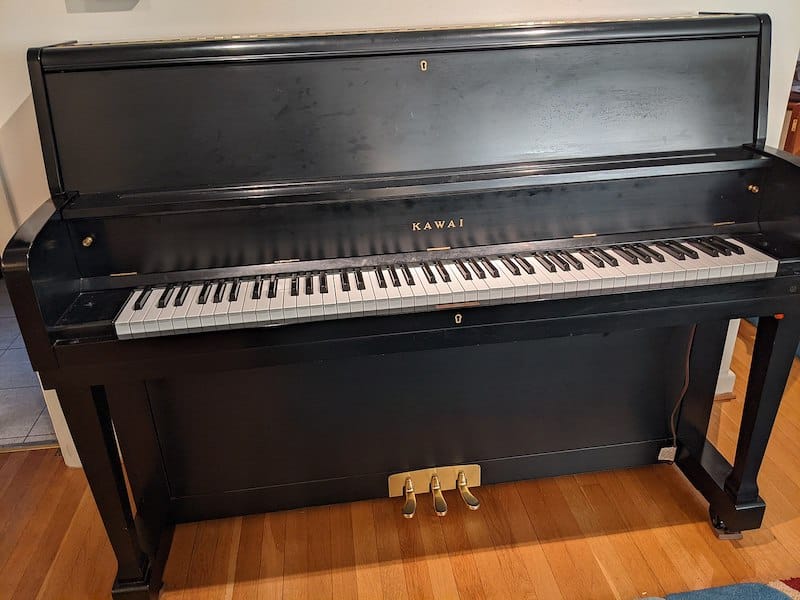
Like Yamaha, Kawai offers an extended range of digital, electric, and hybrid pianos. Their fine design has earned them the nickname Premier Pianos of Japan.
The streamlined production and quality materials make for a very good selection of mid-range piano options.
Broader and fuller in tone than some of its competitors, a Kawai makes an excellent student instrument while being solid enough in construction to support a working professional pianist’s needs.
A Kawai’s warm, sometimes mellow sound means it doesn’t have the harshness or crispness of other brands and plays well in any environment.
8. Stuart & Sons
Boasting “the ultimate Stuart sound,” Stuart & Sons is a manufacturer that strives to remain at the forefront of acoustic piano technology. Interestingly, they are based in Australia and only entered the competitive market in the 1990s.
The master craftsman on site, Wayne Stuart, continually revolutionizes his design process to incorporate new techniques for improved output.
Stuart pianos are custom-built to order and only produce a few new instruments each year.
Like Bösendorfer, they offer pianos with extended keyboards of either 97 or 102 keys for a greater tonal range. They also created the world’s first piano with 108 keys!
9. Mason and Hamlin

American innovation meets European tradition in Mason and Hamlin. The company has been crafting acoustic piano excellence since 1854, when the mechanic-and-pianist namesakes collaborated to produce instruments with fine materials and state-of-the-art design.
Now located in Massachusetts, the new iteration of Mason and Hamlin management’s goal is to put out quality pianos that give more sound than their size would appear to.
They have several models of pianos and three series. Their VX, Artist, and Classic Series cater mostly to mid-level virtuosos and serious piano investors—all with a reputation for quality craftsmanship and sound.
10. Schimmel
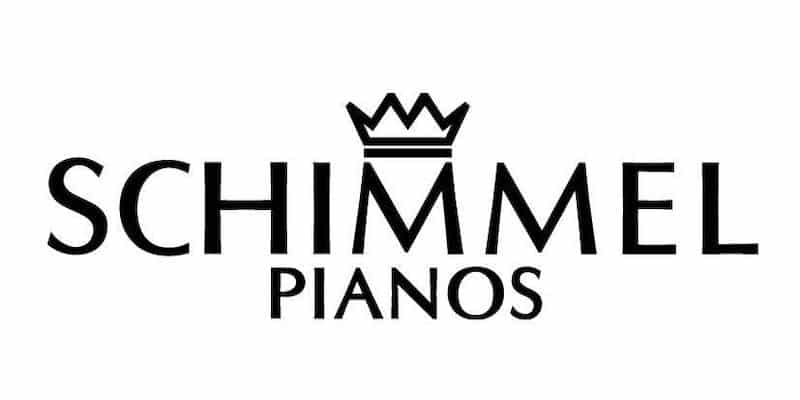
Founded in Leipzig, Germany, in 1885, Schimmel offers both grand and upright pianos for the intermediate to the expert player. They are known for their bright, clear tone and easy action.
The company claims to be the “most highly awarded German piano,” no small feat when compared in a class with Bechstein and other big names.
They put their emphasis on two areas: form and design and sound and performance, claiming to have reached the balance of both worlds for a comfortable and expressive display.
11. Grotrian-Steinweg

There is a lot of passion behind the Grotrian brand, which holds its love for music preeminent. Supposedly, the founder of the company once said to his sons, “Lads, build good pianos, and the rest will take care of itself.” They are reliable and affordable instruments without compromising quality.
Grotrian produces grand and upright pianos in the traditional German piano-making style, with special models available for company anniversaries.
This is an excellent manufacturer to rely on for a good instrument if your wallet doesn’t stretch as far as it needs to accommodate competitor brands.
Summing Up Our List Of Piano Brands
Each piano manufacturer offers something unique in the areas of looks, touch, and sound. Whether you’re shopping for your first keyboard to practice on or have been playing professionally for decades, there’s something on the market that will suit your needs and taste.
One way to compare pianos is simply to visit a piano shop in your area. If you give them a price range, the clerk can introduce you to a variety of brands and what they have to offer. From there, it’s easy to narrow down what you like as far as touch sensitivity, bass resonance, treble tone, and visual appeal.
Remember that a piano is no small commitment. Buying for a home, school, or office means giving up a significant amount of floor space, and the sound a piano produces can disturb neighbors. But if you plan accordingly, you’re sure to find a thrilling instrument that you can cherish for many years to come.


